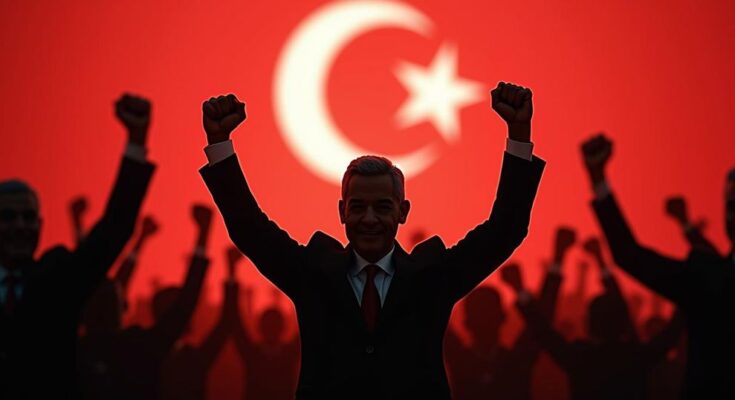President Kais Saied was re-elected in Tunisia’s latest presidential election, winning over 89 percent of the vote amid accusations of an engineered electoral process. His victory reflects a significant trend towards authoritarianism, with many challengers disqualified and his primary rival imprisoned. Voter turnout fell sharply, indicating waning public support and skepticism about the current political climate.
In the latest presidential election in Tunisia, incumbent President Kais Saied secured an overwhelming victory, garnering over 89 percent of the votes against his closest competitors. This election marked a significant moment in Tunisia’s political landscape, as it was the first since President Saied began systematically dismantling the democratic structures established after the Arab Spring in 2011. The election, however, was marred by controversy, as the government had disqualified most challengers and briefly detained Saied’s main rival on allegations of electoral misconduct that were widely deemed questionable by rights organizations. As a result, the electoral environment resembled the oppressive pre-revolution era under former dictator Zine el-Abidine Ben Ali rather than the competitive political process that characterized the years following the Arab Spring. Voter turnout was notably low, approximately half of what was recorded in the preceding presidential elections, indicating a growing disillusionment among the electorate towards President Saied’s administration, despite the absence of viable alternatives within Tunisia’s fragmented political opposition.
Tunisia’s political landscape has undergone significant changes since the Arab Spring revolution in 2011, which led to the ousting of long-time dictator Zine el-Abidine Ben Ali. After a brief period of democratic governance, President Kais Saied was first elected in 2019. However, his subsequent actions, including the consolidation of power and the suppression of dissent, have raised concerns about a return to authoritarianism. The recent election further illustrates this trend, as the incumbent emerged victorious with a dubious electoral process, where most potential rivals were sidelined, thus stifling true democratic competition. This situation reflects a broader struggle within Tunisia, as citizens grapple with political crises and dwindling faith in leadership, complicating hopes for democratic renewal.
In conclusion, President Kais Saied’s recent re-election amidst allegations of an engineered electoral process underscores a troubling regression in Tunisia’s political climate, categorizing it as an environment reminiscent of the dictatorial rule prior to the Arab Spring. The drastic decrease in voter turnout highlights a growing disenchantment among the populace regarding the political status quo, even as opposition factions remain fragmented and ineffective, leaving little hope for meaningful change in the near future.
Original Source: www.nytimes.com




